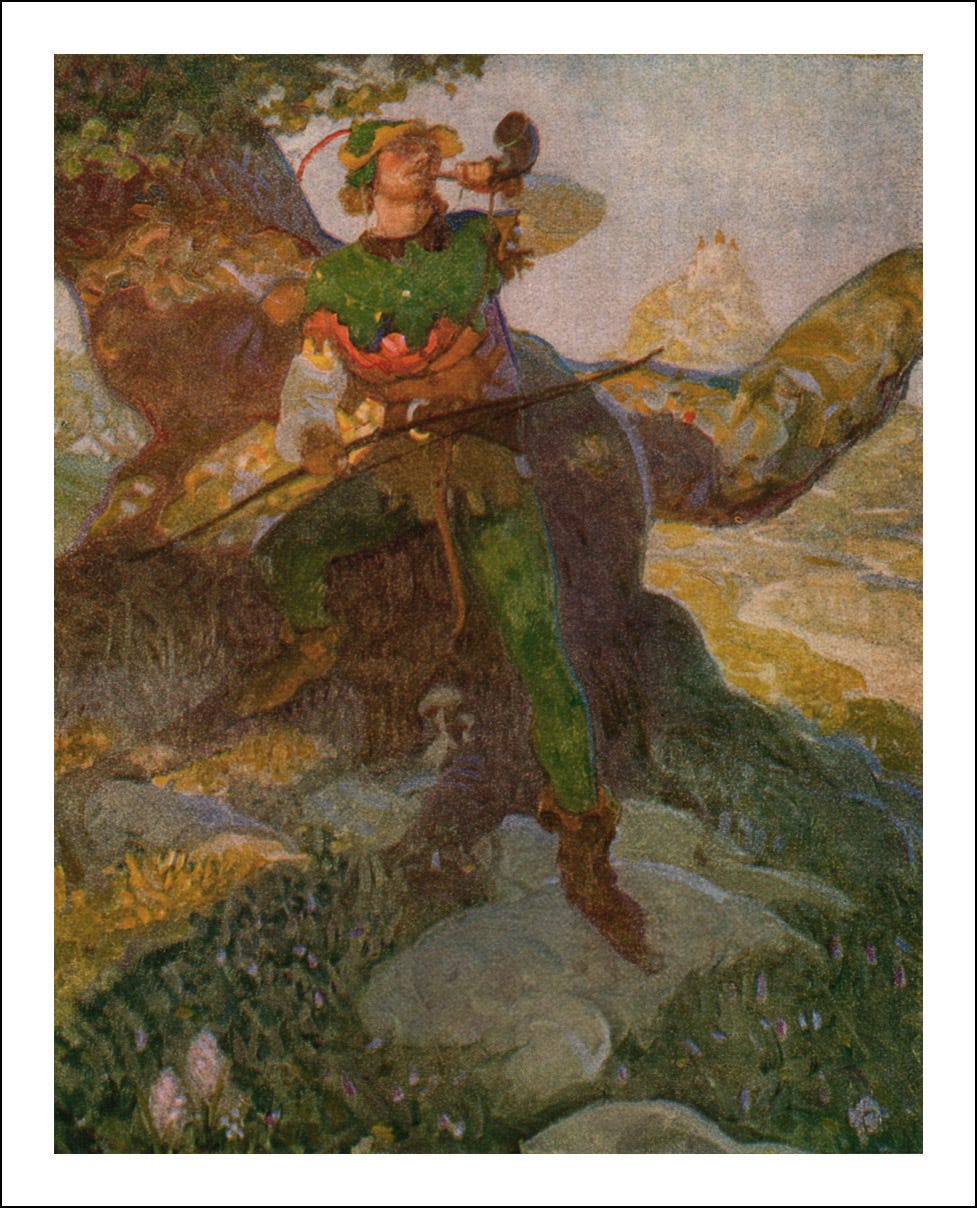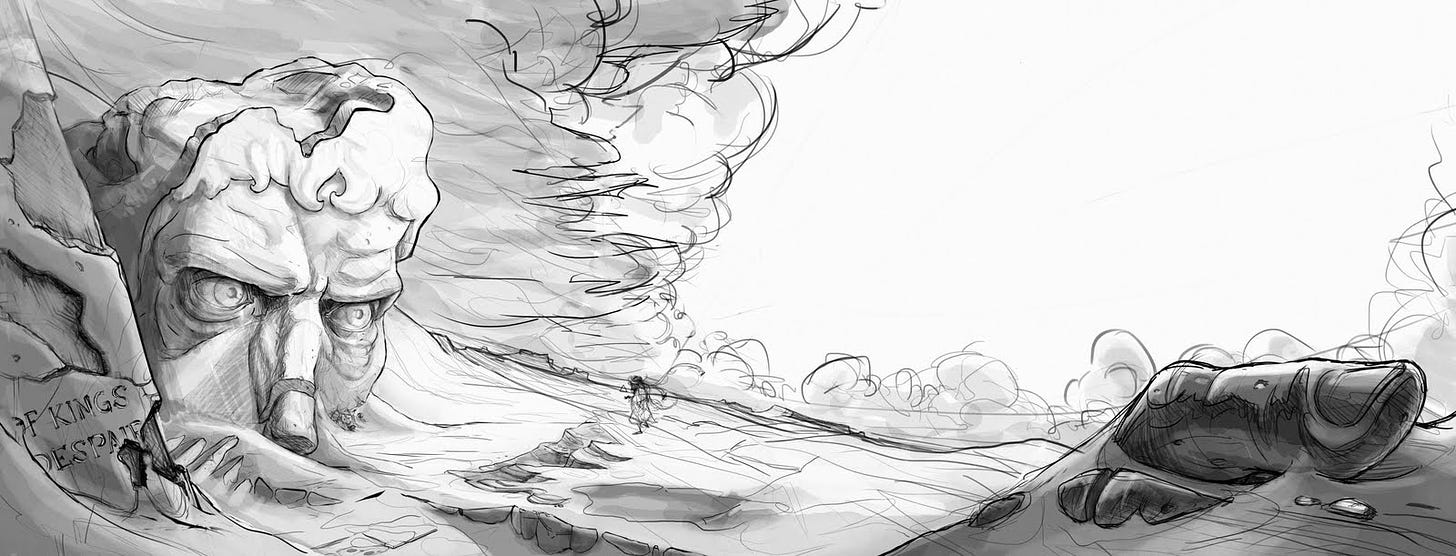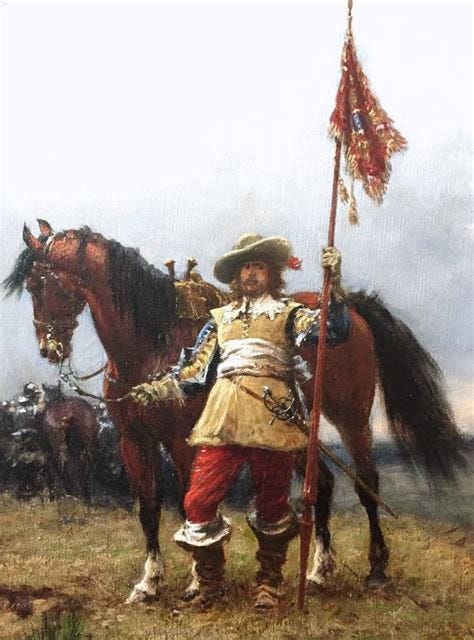I am not “right-wing”. I do not think of myself as such, and to label myself as such produces many dissonances. Now; the nature of my thought places me squarely in the cohort of the “alt-right” or “dissident-right” so-called, but I feel that the designation of “right” fits this wider cohort little better than it does myself.
I do not shy away from being identified with the “right-wing” for the sake of fear or expediency; the views I commonly express are verboten anyway. Rather I honestly feel that this identity is a poor representation which yet encumbers speakers and thinkers in this sphere, and has dogged this cast of thought for a long time. We can of course over-labour a point of semantics, and need not fret obsessively about the colour of our banners, but I think that we have gathered under this one largely by accident. Our opponents have pushed us under this banner to sully us and make us uneasy with our own thought, and we have acquiesced because much that we hold dear also lies under this banner; but I argue that this connection is incidental and not essential; it is at best a position taken tactically for the meanwhile. I suggest that we need a new aegis umoored from the old political designations.
I read the arguments regarding “no enemies to the right” and see their sense, but my intention is not to pillory others under the shadow of the banner or sever our solidarity with them, but to prove that they do not truly belong under that banner, even as they may rightly belong together. Indeed, it may be observed that those claimed to be at the furthest reaches of the “right-wing” actually conform least comfortably to its stereotypes. Our centre of gravity is not located in tendencies of political thought or temporal policy but in perennial poles which transcend the political; virtue, justice and harmony with what is immutable. Adherence to these things will place one incidentally to the “right” or “left” of an arbitrary axis depending on age and circumstance. It is true that These principles have been the ostensible preserve of the political right from at least our grandfathers’ time, but we have erred to think that it is their actual, natural or permanent habitat.
Cuckoo, by Bairei Kono
First let us turn to the economic stereotype. Now, better scholars than I have doubtlessly made very fair and exact analyses of what the bona fide characteristics of the right are, but we are discussing the operative assumptions and connotations which move the minds of unscholastic men, and in this common mode the right wing is characterised by its devotion to pursuit of wealth through the markets. With good (if not unassailable) reason the right is identified with the ascendancy of Capital. In recent times especially, many well intentioned men have rallied to the defence of “free enterprise” because the insidious forces of modern authority are vocal against it. Capitalism and entrepreneurship have come to serve as totems of liberty, and to some degree actual refuges of liberty against state encroachments, but of themselves they do not marry well to our priorities. We should not, of course, oppose wealth per se, but wealth has perennially been a pitfall of virtue- remember the eye of the needle- and in our recent history has overwhelmingly ranged itself against the principles which animate us; let us say conservatively, from the Industrial revolution. Perhaps the most unthinking part of the “right” nourishes a fantasy of Trump reanimating the cadaver of Reagan’s America, but this blue-suited dream only overlaps very scantily with what we want. I say that those too who hearken back to the British empire are selling their ideals very short; for all of its relative virtues it was mercenary and prosaically-minded. Modern systems of commerce, however they are politically managed, are not conducive to nobility of conduct and the production of worth. I would not be surprised to learn that many of the most vociferous of the “alt-right” had their political awakening as staunch socialists (and privatly still love Rage Against the Machine, even now), and I think that there is little contradiction in the development. Say what you will about the contemporary derangements of socialism; its spiritual mainspring is to wage war against what is obviously unjust. Even if it is blinkered to all other depravity, socialism’s ire is basically correct, and in so far as it is a righteous anger, should likewise be rescued from the “left wing” designation. Is Robin Hood a “left-wing” character? It is all too obvious that the establishment actors who bandy the terms of socialist thought are only wearing the skin-suits of a genuinely rebel spirit, and it is notable that these are often the figures at the head table of actual capitalism. I am not naive to the longstanding corruptions of anti-capitalist sentiment (since before Marx) and I do believe that there is something inherently corrupting in a levelling dogma, yet we do not forsake anything worthwhile to have sympathy with antagonism to Capital. Capital no less than other institutional powers has been the instrument of degeneration of our West, and the dreams that animate the best of the dissident sphere bear little resemblance to any recognisable capitalism. One of the luminaries of dissident thought goes by “The Distributist”, and that is an economic philosophy at once better suited to our minds and irreconcilable to modern capital or the industrial economy. We do not need to jump to a luddite or medieval vision to assert that though right order, justice and individual virtue may exist under market economics, they exist in spite of its influences. If anything we should be more outspoken and more radical in our damnation of the cruel, pale folly that is capital and all of its mercantile misdeeds; this does not align us with the left, but a pole far north of left and right that is simply “upright”.
Robin Hood by Dan Content
Secondly let us turn to the “right-wing” characteristic of esteeming law, privilege and tradition. Well, it must be granted that these things have perennial value, but all under a stern qualification; that the prevailing order be a basically virtuous pattern. The political right wing has tended to a blind defence of these things even when they have long since been sapped of the mandate of heaven; they have been mocked as stuffy or petrified because of their adherence to established structure, and there is more than a little truth to this criticism. To my mind the institutions of law, privilege and tradition in the West have been so bent, corrupted and hollowed out that little can even be salvaged from them; the structures of order will need to be forged again, and probably on a much older model, reaching back further than any of our familiar traditions. You have seen the peculiar effect of right wing conventionality very recently in relation to the police. Under the lockdowns police, and the force of law in general, was seen in its real cravenness and bankruptcy, and this was well played by the dissident sphere. When, however, the police are visibly ranged against the agencies of decay in the shape of minority urban crime or sexual deviants the actions of yesterday are quickly forgotten; the enforcers are again pillars upholding decent society. Now, of course we are in a practical quandry because we are aware that whatever ills the force of law commits and allows, its removal would quickly usher in chaos. Moreover there are obviously virtuous individuals holding back the worst of the tide of social degeneration. These things mean that we must be careful and serious in our approach to the issue of law, unlike the glib attacks and dangerous fantasies that have spawned in progressive politics; nonetheless we must own that these institutions have damned themselves and no matter how many worthy individuals they yet contain, cannot be counted as friendly powers. What is more, they already show signs of imminent collapse and are rapidly losing their remaining efficacy regardless of the support of decent citizens; chaos is coming anyway. We see that there are yet good men in law, the civil service and other venerable institutions, but we see that they are kept down by their institutions in the good they may prove of themselves, and are obliged to their service only because of their de facto monopoly. The right wing has already practically abandoned all respect for the institutions of education, established politics and media, but their self-regard as right wing yet seems to prevent them from throwing up resepect for the whole established order. People are still clutching their copies of the constitution and polished brass badges as though these things were invested with moral authority for all time, but whatever was true of our establishments in the past, the season of their virtue is done. This clearly also applies to the military, and perhaps more especially to the military. Good fighting men are no longer attracted to armies and appear to be abandoning them with rapidity, as is only right. The honest, the brave, the sane, the competent; all these are too good for the institutions which still suckle at an automatic (if strained) right wing respect.
We naturally look forward to the upraising of institutions to serve us anew, but I reckon they will be just about wholly new institutions, and any continuity from the old will come only from the men who escaped the old establishments in their collapse to reinvest their worth and experience in novel order. At this juncture in time, therefore, the upright position which cleaves most nearly to truth is antagonism to the venerable and opposition to institutions in general.
Padme in the senate, by Darren Tan
Lastly I point out the distinction between what is “right wing” and our own “dissident” philosophy in terms of piety and religion. If anything, this may be the most contentious point, and relies upon a more subtle distinction, but hear me out. Right wing or conservative politics has almost always been the side of the aisle to align with the church and religious belief, the left wing and progressive being characterised by the opposite tendency of secularism and atheism. The “upright” position (as I would characterise the position we are striving for) is not half way between these points, but is off the line of their contest. Now, it is obvious that spiritual faith and a conscious observance of what is higher, what is divine, has conspicuously marked out men of upright thought, but again the alignment of this sentiment with the religious mores of any political right wing has been largely incidental. If I had to succinctly characterise the core tenet of dissident philosophy I would offer this; the affairs of men all depend on individual virtue. It is true that this virtue is commonly rooted in a theological conviction of some type, but the feeling of the necessity- the rightness- of virtue is a more primordial power than the theology which expresses that feeling, having a more primal foundation that is properly called “faith” and which can be recognised just as easily in certain heretics and atheists as any saint. To my understanding, both left and right wing politics are follies of the same type; both appeal to a particular mode of order as the foundation of worth and happiness, the left egalitarian, the right heirarchical. In truth both modes of order are just technologies of social organisation, patterned on different facets of natural law, elements of now one, now another, becoming apposite as situations change. The devotion to virtue is the health and strength of either system, and will define them both in their proper subservient stations, whether this devotion is theologically articulated or not articulated at all. I should add that I do not believe that the manner of our devotion is unimportant; not all philosophies and religions are created equal, it is worthy to attempt to express what we believe, and it is not ridiculous for a people to elect one worship as true or best. Only this true seeking can only go profitably where virtue is well bedded as the precondition of any question; political, practical or metaphysical.
In a similar way to how I presented right wing devotion to institutional order, the religions and their established bodies seem to have forsaken their right to loyalty. I know that there are many in the dissident sphere who have hitched their horses to Catholicism or Orthodoxy, and I certainly sympathise, but I believe that the instincts of their faith have been coopted by bodies which retain just enough truth to bait the faithful. I believe that I worship the same God as Tolkien did, but to my eyes even in Tolkien’s day his personal conception was better and higher than the religion he bowed to. This should not be conceived as hubris, and I am not suggesting the concoction of some novel religious belief; rather I think that the situation is tragic and should be recognised as tragic. The old beliefs, whatever their past merits, have passed their decrepitude. They are perhaps less obviously corrupt and malign that the secular institutions (maybe excepting the Catholic church) but are even more hollowed and ineffectual. Nor do I see great hope in groping to far shores or into the distant past for a pagan worship to reinvigorate our spiritual lives. Our spiritual lives will only be reinvigorated by the cultivation of our virtue, even if we give no more logic for this than the self-evident beauty of virtue, and if we can make strides in this then we will be rewarded with a worship proper to us. Northern Paganism, in my view, has only taken on a new vogue because it encourages a natural prejudice favourable to the development of virtue, but bears little metaphisical fruit beyond this as a system. The last few centuries have abounded with reformers, mystics and gurus of all stripes, but there is only one figure whom I am firmly convinced was a prophet: Emerson; and this overpowering enthusiasm for virtue and individually worshiped principle is best spelled out under his pen. Religion serves the right wing as justification, but this is wrong for us. Religion cannot serve as a justification for anything we do; it can only serve as an explanation (however imperfect) of our beliefs and a harmonisation of our observances. Virtue needs no justification, and is too heavy a load to hang upon a religion; commonly we get around this problem by greatly reducing the virtue that religion is expected to uphold to a few niceties and dogmas.
From my point of view we are too easily led astray by the mythology of the superman (which, incidentally, is not the sole preserve of the right wing). The trope of the superman is a potent figure, and may actually be a true revelation for our late age, but was misconstrued from the outset. Virtue is objective and above the heart of man in the direction of God. The superman is not the figure who arbitrates virtue ex nihilo from his own will, but the man who actually attains to objective virtues through the exercise of will and independent of all restraint and convention. Our churches, our religions have held us back from this further step in the striving of man toward divine purpose, and that striving is the only spiritual commitment proper to our sphere, not commitment to any remaining edifice of worship. I do not hope to offend in this; but the voices of our cohort which align their dissident convictions to Christianity of any established flavour strike me as unconvincing; not that I doubt the sincerity of their worship or the honesty of their rationale, but that the vitality and solidity of their “dissident” thought cannot marry to religious respect convincingly. I do not make a forthright argument of this, but I confess that my honest feeling is that there is no worthy organised worship to be had in our world now; if there was in our history we have only their warped remnants. I suspect that no true worship can tolerate very much organisation (or maybe rather broadening) anyway, but I do live in anticipation of some new revelation; only I do not think we can wait for a new revelation to establish ourselves in virtue (which is the faith primordial), and such a revelation can only come upon that accomplishment. For my part I think that this kind of anti-clericalism and (religious) agnosticism is neither bleak nor atheistic, but will seem so to the extent that we are unable to depend more fully on faith, being the unspoken, unreasoned prime matter from which the particular worships bloom like flowers or weeds. Nor is this a kumbaya of syncretism or universalism; the faith which reaches to virtue is more exacting than any dogma, and most of the lesser philosophies which spring from is will eventually be mown down like weeds because they are insufficiently exact in their relation to truth; only it is useless to argue over these particulars until we have drawn closer to the fire itself, and can see more clearly by it. A religion can feasibly be better than its adherants and so pull them up to a greater height, but can probably only ever be a little better than its adherants, and is only upheld by their strength.
Ozymandias by Christopher Vear
So there is my argument. If the dissident sphere is right wing, then it is a right wing movement which bitterly opposes capitalism, seeks to topple venerable order and preaches liberation from religious dogma- a very unlikely right wing type; and I am not saying that this is what I personally think that the dissident sphere should espouse; I am saying that these are deep-rooted sentiments which I recognise in the discourse, and most especially in the best of the discourse. I think that many dissidents have not seen this clearly or admitted these things to themselves, but I think that it is their natural tendency. Therefore we need a better gathering ground than under the aegis of right wing politics or even “traditionalism”, which both associate us with hobbling and corrupting influences. I would tentatively suggest something like the Latin term “Recta”, meaning straight or direct, and having the proper connotation to what is solid and upright. This is a position that will always have political implications, but is not doctrinally political; it is the insistence on virtue as the lode-star of all questions which determine the affairs of men, and will prove moderate and extreme as times and questions blow about its more primal mooring. Now, I know full well that you all are not going to read this and rush to distance yourself from the right/alt-right/traditionalist/conservative field, nor should you. Despite all of the problems I have outlined, and more, that is where we have found ourselves or been pushed together, and it has some utility for us as things stand. Our marriage to the right has been more convenient and cogent while the powers of iniquity have ranged their engines predominantly on the left of the stage, but it is only a marriage of convenience. Rectitude, uprightness, virtue; this is our true love and the commitment we have honoured simply by its closer temporal affinity to the right, but let us not get too comfortable with the simulacrum of what is “Recta”, and let us perhaps start to group our people and thoughts under a truer title like this. “Dissident” is too temporal, because dissent is a condition we hope to relinquish in due course, even many generations hence. “Alt right” is an ugly neologism, and fails to cut the political fetters. Not that the term matters terribly, but the idea that we have matured into our own domain, planting a flag in soil deeper than modern politics and circumstance. If we look, as we often do, at kingships and empires and orders of the past, the examples we tend to hold up as best will rarely be found to conform comfortably to the tenets of right or left wing politics (as they have grown up through three hundred years). All will demonstrate concern for perennial wisdoms which are usurped by both sides of the aisle, and all will be characterised by very many exigencies of the day which paint them closer to one side or the other by happenstance. Their rectitude is what counts, and more particularly the rectutude of the individuals cohered by these orders.
As a final point; I do not suggest we do this to make ourselves more palatable or inviting. Whilst I do believe that a significant number now on “the left” are basically well-motivated and are just fiendishly entangled by mental and practical binds, and for some of these the simple disappearance of the “right wing” label may be enough to cut the Gordian knot of their current stance, the dissident philosophy under any name contains many crucial concepts which will maintain it as the enemy of the vast majority. Questions of race, moral righteousness and metaphysical objectivity are not part of our adopted “right wing” identity as such, but are essential to our thought and go with us. Indeed, so far as political evangelism goes, a more fully expressed independence of dissident thought is likely to loose us more people on the right than it is to gain any on the left; for as much as we hate sexual degeneracy, we hate usury with at least as much ire, and would strike it down no matter what toppled with it. For as much as we hate the politics of jealousy and artificial equalising, we hate too the gaudy depravity of greed, ostentation and careless tycoonism. I have never taken a strong interest in the Trump question; it is vexing, muddy and convoluted; but from the outset it has seemed to me that little hope could be put in a man who owned casinos. Seeing some vague glimmer of hope in such a figure, many have pledged an unnatural affinity and become gummed to an unclean totem. If the sentiments of the dissident sphere were freed, would we not raze the casinos to the ground along with the banks? Would we not demolish the hideous high-rise complexes with the Satanic temples? The reckoning would have to come to the CEOs as much as to the NGOs, and we should discover that they were all sprouts from the same tuber.
Virtue- rectitude; whatever be the main talking points of the day amongst the dissident sphere, virtue and rectitude is the animating centre of its phisolophy as I see it, and let us not think that this is too vague a banner to gather towards; life readily proves that those who make these things their explicit goal come together naturally and jointly arrive at agreeable particulars. Has this not been seen in the new wave of physical culture? The cohorts of those striving to imbue their bodies with virtue have proved natural disciples of dissident thought, so much so that the established power has been forced to pontificate about the dangers of gymnastic regimes. Virtue and rectitude as standards are not vague, but only very comprehensive, as must be any banner or symbol fit for purpose. Let us pledge this more natural affinity.









Based on your link to the Latin word "rectus", I think The Rectification would be a splendid term for our movement. We are setting things right.
The Renaissance implied a rebirth of something that had died.
The Reformation suggested an improvement in the theology of the era.
The Enlightenment connotated an awakening of understanding.
The Rectification implies that we are setting things right, not by reform, but by righteous rectitude.
I might write about this. Great insights in your essay.
Once the proper order is recognized, even vaguely, one begins to get the sense that ideology is superfluous to the cause.
It then becomes more about what must be done in order to set things right. This can happen organically, without the need for grandiose ideations or anticipating future outcomes. The best part, is that it can begin at the individual level—perhaps it must begin there. No wishful thinking, no waiting for a savior, just responsibility and action.